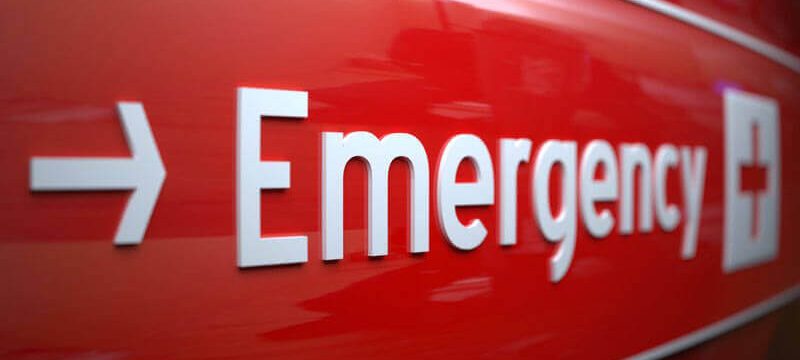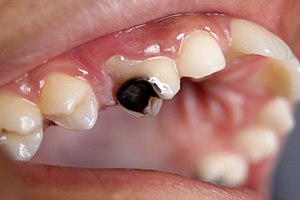
The question, “does the emergency room remove teeth?” is often asked and, unfortunately the answer is no.
The reason for this is because there are many different types of emergencies that require treatment for things other than a toothache. In fact, it’s best to call in a dentist before heading over to the ER. While ERs can provide temporary relief for dental pain, they are not equipped for comprehensive dental care.
If you are ever in need of emergency dental care, don’t go to the nearest hospital. Hospital emergency rooms won’t provide any dental care for patients and will only prescribe medication.
In order to fix a tooth, you’ll likely have to find a local dentist in Rockville that can do it for you. These dentists can treat any and all emergencies during regular office hours or after hours provided they are available on the day you call them.
It is crucial to seek care from an emergency dentist for urgent dental issues, such as severe pain, bleeding, or a knocked-out tooth.
Understanding Dental Emergencies
A dental emergency is a situation that requires immediate attention from a dentist to alleviate severe pain, prevent further complications, and promote long-term oral health. Dental emergencies can arise from various factors, including accidents, sports injuries, poor oral health habits, or the sudden onset of severe tooth pain.
Common dental emergencies include severe toothaches, knocked-out teeth, broken teeth, and dental abscesses. Prompt treatment is essential for preventing further complications and ensuring long-term oral health. Regular check-ups with a dentist can help detect potential problems early and prevent them from escalating into dental emergencies.
Identifying a Dental Emergency
Recognizing the signs of a dental emergency is crucial for seeking timely care. Severe tooth pain that persists or worsens over time is a clear indicator of a dental emergency. Swelling, bleeding, or pus around the teeth or gums can also signal a serious issue. A knocked-out tooth or a tooth that is loose or partially dislodged requires immediate attention.
Additionally, a dental abscess or infection can cause severe pain, swelling, and fever, necessitating prompt treatment. If you experience difficulty swallowing, breathing, or speaking due to a dental issue, it is essential to seek emergency dental care immediately.
When to Seek Emergency Dental Care
If you are experiencing severe tooth pain, swelling, or bleeding, it is crucial to seek emergency dental care immediately. In the case of a knocked-out tooth, try to reinsert it into the socket and seek emergency dental care within 60 minutes to increase the chances of saving the tooth.
If you have a dental abscess or infection, prompt treatment is necessary to prevent further complications. Difficulty swallowing, breathing, or speaking due to a dental issue also warrants immediate medical attention. When in doubt, it is always better to err on the side of caution and seek emergency dental care to address any potential issues.
What Else Can’t an Emergency Room Do?
Emergency rooms don’t have time to do any more than provide pain medication for things like a toothache because they are too busy with immediate needs – such as trauma cases or when someone isn’t breathing.
ERs cannot perform emergency tooth extractions due to legal and practical limitations. Professional tooth extractions are best left to a professional dentist and not to be done at the emergency room. Physicians are not trained to remove teeth. They will likely only give you a shot of novocaine and refer you to a local dentist. While ERs generally do not er pull a tooth, some hospitals may have dentists available who can handle tooth extractions.
Benefits of Emergency Dentistry
Emergency dentistry provides prompt relief from severe tooth pain and discomfort, ensuring that you can return to your daily activities as quickly as possible. By addressing dental issues immediately, emergency dentistry can prevent further complications and promote long-term oral health. It can also save teeth that might otherwise be lost due to injury or decay. In some cases, emergency dentistry can provide temporary relief from dental issues until a more permanent solution can be implemented. Seeking emergency dental care can help prevent costly and time-consuming dental procedures down the line, making it a wise investment in your oral health.
The Best Treatment Options For Emergency Dental Care
Although an emergency room visit may be scary, ERs can provide stronger pain medications for severe tooth pain, offering immediate relief when over-the-counter options fail. So if you are asking google “does the emergency room remove teeth?“, you should already be searching for a local dentist to help with your tooth problem.
Emergency rooms can offer temporary pain relief for dental issues, but they are not a substitute for comprehensive dental care.
How to Provide Temporary Relief for Tooth Pain
Having a tooth extraction performed by a dentist who can prescribe medication and take care of all needs for treatment is better than sitting for hours in an emergency room. Knowing what questions to ask and when you need to go to the dentist for help can make all the difference in getting fast treatment and feeling better about yourself. Additionally, your tooth may be savable and your local dentist can help you save the tooth by providing other treatments such as fillings, crowns and root canals.
Emergency rooms don’t have time to do more than prescribe medication for a toothache. They also can’t handle complicated cases such as tooth removals or leaving you without food/fluids without damaging your teeth. It’s best to call a dentist or go to the nearest urgent care clinic or emergency room before going to the ER.



